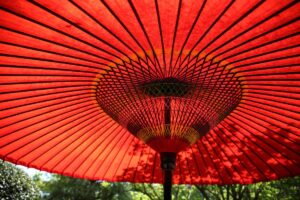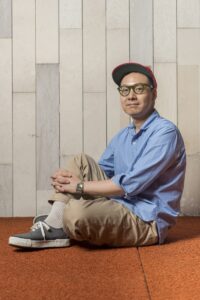How China’s Millennials are Changing the Social Economy

Young people are realizing that we need to find ways for businesses to coexist with society and the environment, and not just grow economically. A positive shift is just around the corner.
The original article SOCIAL CHANGE MAKER is a part of the WORK MILL with Forbes JAPAN Issue 3 —THE AGE OF POST-INNOVATIONALISM ©WORK MILL, published on October 2, 2018
B Corp companies like Patagonia and Ben & Jerry’s don’t “compete to be the best in the world,” but “compete to be the best for the world.” They aim to balance economic growth with involvement in social and environmental issues. Besides Gung Ho! and Jump! Foundation, China now has 9 B Corp certified companies as of September 2018, but there were none back in 2016. Already, China has 3 times the number of B Corp companies as Japan.
To better understand what’s behind this surge of social involvement, we interviewed Min Ko, one of the founders of B Corps China, a driving factor behind China’s social movement. “The awareness among the millennials especially is definitely changing,” says Ko. “Young people are realizing that we need to find ways for businesses to coexist with society and the environment, and not just grow economically.”
Ko joined an NPO called Leping Foundation in 2017. She then founded B Corps China to promote social movements all across China. Still in their first year since their foundation, and Ko analyzes the present state of China’s social movements. “The overall understanding in China of the concept of social innovation and impact investment is still undeveloped. Our goal is to create an ecosystem for a better society, but before that, we need to spread the philosophy behind B Corp. We need to circulate the message that the strengths of the private sector should be utilized to solve China’s social issues too. We must implant that awareness into the people.”
They focused first on the millennials, especially the students. It’s a grassroots movement, gradually changing the mindsets of young students, the future leaders of China, by listening and exchanging ideas about the society and the economy.
Through these sessions, Ko felt that interest and demand for a mission-driven career path is on the rise. “But in reality, there are only two options for them; to find a job at an ordinary company or to start their own. Some go on to work in the social sector to do something more meaningful, but they don’t last.”
Ko believes the reason lies in the low wages and lack of opportunities for personal growth. As matters stand, they can’t earn enough to make a living in this rapidly growing society where living costs are rocketing.
A third option for students
After personally witnessing China’s current situation China, Ko began a leadership program for young people called the Regeneration Project. For students who long for a job with social significance but also wish for a compensation that corresponds to the labor, this experiential program provides students with a third choice, B Corp, and offers them the chance to put their dreams into action.
“This program is targeted towards students of China’s top universities such as Peking University and Tsinghua University. We empower students to found B Corp companies or B Corp-like business models. We also bridge the gap between excellent human resources and existing B Corp companies.”
To spread the B Corp philosophy throughout China’s business world, they host workshops together with investors and management consultants. But for now, their main focus is young intelligent students.
Act first, and wait for the fire to catch
“I wish the government would hurry up and ban plastic straws.” So says a recycle shop owner in Beijing. And he’s not the only one. People of social companies are eagerly waiting for the government to take action. When launching a campaign, there’s a limit to what the private sector can do. But in China, all it takes is a word from the government to spread a code of conduct throughout the country in a matter of days.
“Right now, there isn’t enough support for social entrepreneurs,” sighs Ko. “It is a fairly new idea in China.” But for now, not only is the number of B Corp companies increasing, but people from other countries and Chinese people who studied abroad have also increased, leading the movement. “China is a country where once the flame catches, it spreads like wildfire. If the number of businesses that care about the society and the environment increases, I know we can achieve a lot in a short amount of time.”
A glimpse into some of China’s B Corp companies
Bottle Dream
Sparked by a blog entry, Bottle Dream was founded in 2011. In 2012, founder Kenny Choi traveled to over 20 countries and interviewed more than 100 people for a documentary on social innovation called Creativity. Bottle Dream does everything from creating contents, hosting conferences, to operating their own platform, but everything they do is focused on social innovation.
ShenZhen LianDi Accessibility
This enterprise consulting and data analysis firm has provided systems for global companies such as Alibaba, Tencent, and Baidu. They promote a work style in which everybody can freely and easily access all necessary information. In 2018, they were recognized for being beneficial to their employees and received the Best for Worker Award
First Respond
First Respond acquired China’s first B Corp certification in June 2016. Their aim is to spread basic first aid knowledge to all Chinese by popularizing emergency life saving devices and hosting first aid workshops. As urbanization advances and people’s relations weaken, their vision is to bring back China’s spirit of mutual aid.
Singbee
Singbee, situated in Zhejiang, has manufactured LED lights ever since its foundation in 2006. Together with Peking University, they developed an LED lamp that can shine for over 240 thousand hours. They have also implemented a manufacturing process that doesn’t generate excess garbage thanks to the product design made for mass production.
Oplus
Oplus manufactures and sells characterized reading robots. They offer an analysis service where children’s reading comprehension level is sent to the caregiver’s phone. They also have a “Buy a phone, Start a movement” campaign in which a book is donated for every purchase to children of underprivileged areas.
SKT Education Group
SKT, located in Shenzhen, acquired their B Corp certification in February 2018. Their unique educational programs have been applied to more than 200 schools in 20 regions over the past 4 years. Through experiential programs on liberal arts, leadership, and cross-cultural communication, they help expand school and career options at home and abroad.






